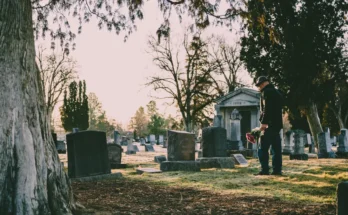Eight-year-old Clark Wesenberg was drowning in grief. His twin brother Ted had died in a tragic accident—found lifeless in the family pool. Since then, their home had become a battlefield. His parents, Linda and Paul, were consumed by blame and sorrow, fighting constantly and forgetting the son who was still alive.
Clark felt invisible. Breakfasts were burnt, hugs were gone, and bedtime kisses had vanished. One night, after another explosive argument, Clark snapped. “I’m going to meet Ted,” he cried, grabbing the dahlias they once grew together and running to the cemetery.
Hours passed. It was 11 p.m. and Clark hadn’t returned. Linda panicked. Paul was unreachable. When they finally realized where he’d gone, they raced to the graveyard—only to find a fire-lit gathering of teens in black robes performing mock rituals. One boy sneered, “Your son shouldn’t have come.”
Terrified, Paul grabbed the teen and demanded answers. That’s when they learned Clark had been found by Mr. Bowen, the cemetery’s caretaker. A widower who’d lost his own family in a plane crash, Bowen had taken Clark in, offered him hot chocolate, and listened.
Clark poured out his heart—how unloved he felt, how much he missed Ted, how broken his parents had become. Bowen gently urged him to forgive, to understand that grief warps love but doesn’t erase it.
Outside, Linda and Paul overheard everything. Tears streaming, they burst in and embraced their son. “I’m so sorry,” Linda sobbed. Paul thanked Bowen for saving not just Clark, but their family.
In the months that followed, healing began. The Wesenbergs found peace not by forgetting Ted, but by remembering Clark still needed them. And Mr. Bowen? He became family too.


